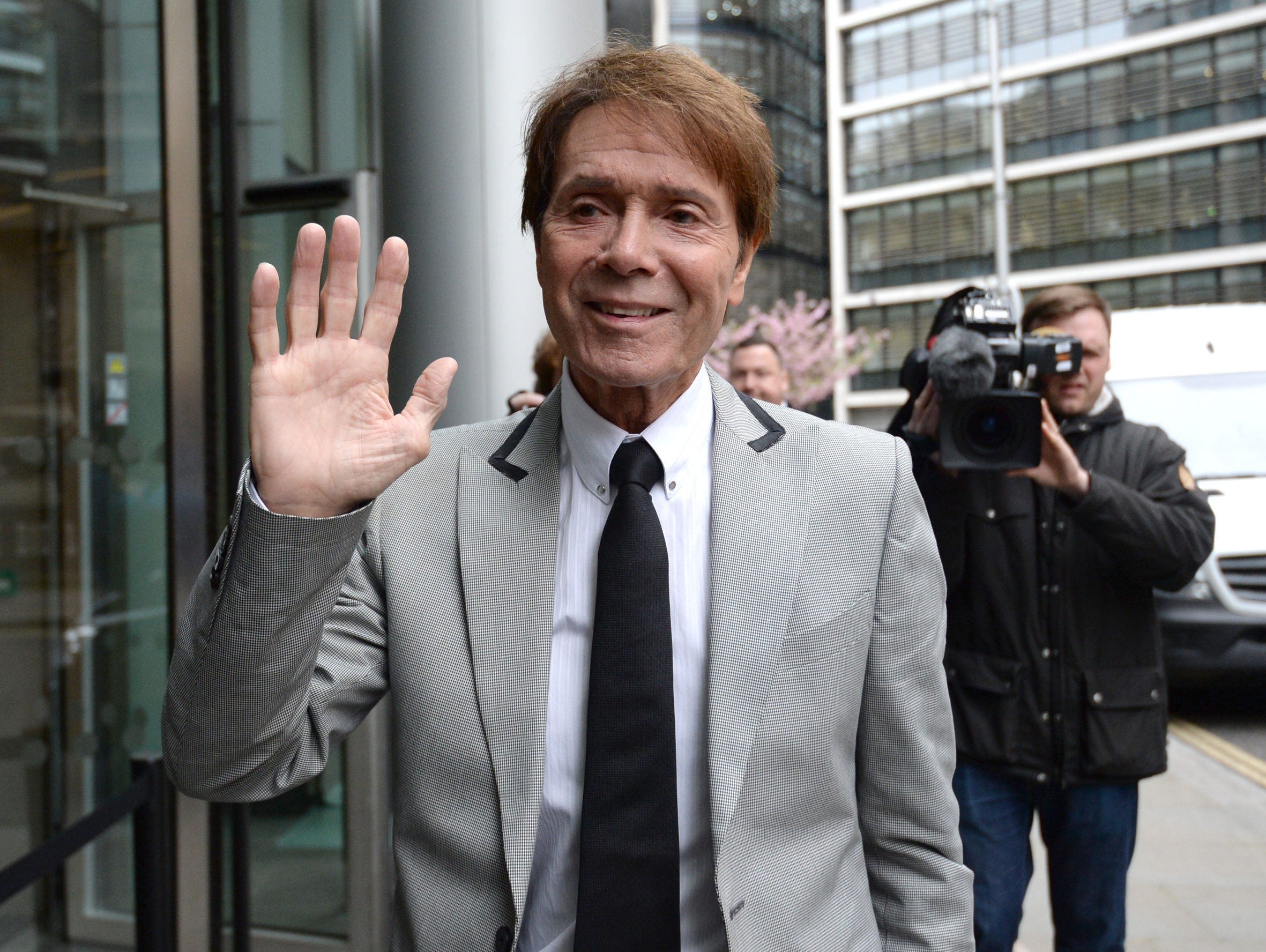
A senior BBC editor has told a judge that he had no concerns about the broadcasting of images taken from a helicopter during coverage of a police raid on Sir Cliff Richard’s home nearly four years ago.
Jonathan Munro, head of newsgathering at the BBC, told Mr Justice Mann that he reviewed “helicopter footage” and did not have “any concerns”.
Munro, who was giving evidence during the latest stage of the High Court trial in London of Sir Cliff’s claim against the BBC for invasion of his privacy, outlined his thoughts in a written witness statement.
Sir Cliff, 77, is claiming damages at the “top end” of the scale from the BBC for its coverage of a search of his home in Sunningdale, Berks, in August 2014, which he claims was a “very serious invasion” of his privacy.
The BBC is fighting case, arguing that its coverage was accurate, in good faith, and a matter of public interest.
Munro said no issues about particular images recorded by the helicopter had been “referred up” on the day of the search.
“During the course of preparing this witness statement I have reviewed the images which the BBC broadcast, including the helicopter footage,” he said. “I do not have any concerns about the broadcasting of these images.”
Munro said images of “active police work” had been recorded for later transmission.
He said the “only live shots we ran” were routine images of officers returning to cars and leaving the development.
“It is normal to put the helicopter up to gather images in cases where it would be difficult to capture images from ground level,” he said.
“In terms of how images recorded by the helicopter were subsequently dealt with, I would highlight that in newsgathering, our role is to gather all relevant information, including images, in respect of a particular story.”
Munro said he was “entirely comfortable” with reporter Dan Johnson’s dealings with South Yorkshire Police.
The court heard he sent the reporter an e-mail following the story in which he wrote: “Terrific work today, great scoop. Really well done.”
He told the court: “I am entirely comfortable with Dan Johnson’s conversation about the information he took to South Yorkshire Police in July 2014.
“I think he behaved completely honourably in second sourcing a piece of information which turned out to be factually true.”
Munro said there were no concerns about the information because it was from “an absolutely reliable source” seconded by police. He said editorial standards and values were applied to the story.
Asked by Justin Rushbrooke QC, for Sir Cliff, if he believed it was acceptable to fly a helicopter over the private estate and “spy” into the singer’s home, Munro said he would not use the word “spy”.
But he added that he did believe it was acceptable to film police searching the home of someone under investigation.
Rushbrooke responded: “If that is your genuine belief I suggest to you that you are unfit for your job.”
Asked if he had given consideration to BBC editorial guidelines about “disproportionality and intrusion”, Munro said he had, and that he believed there was a public interest in seeing the police search and in reporting the investigation in the wake of a number of high-profile allegations of sexual abuse.
There was a “balance of different rights and responsibilities” and it was important that things were “being seen to be done” by the wider public.
“For the public it is important to be able to see what is happening on a given event,” Munro said, adding that he also did not believe the helicopter was trespassing.
Asked further about the use of the helicopter, Munro said: “It is about ensuring that we are delivering to the public direct evidence of the police investigation we are reporting on.”
Rushbrooke said: “You knew it was going to be grossly intrusive and you know now it was grossly intrusive.”
Munro replied: “I do not agree with that.”
Earlier this week, Gary Smith, who was UK news editor for BBC News at the time of the search, told the court he believed the BBC “did the right thing” by revealing that detectives were investigating Sir Cliff.
He said journalists had a responsibility to report such stories.
Picture: Kirsty O’Connor/PA Wire
Email pged@pressgazette.co.uk to point out mistakes, provide story tips or send in a letter for publication on our "Letters Page" blog
